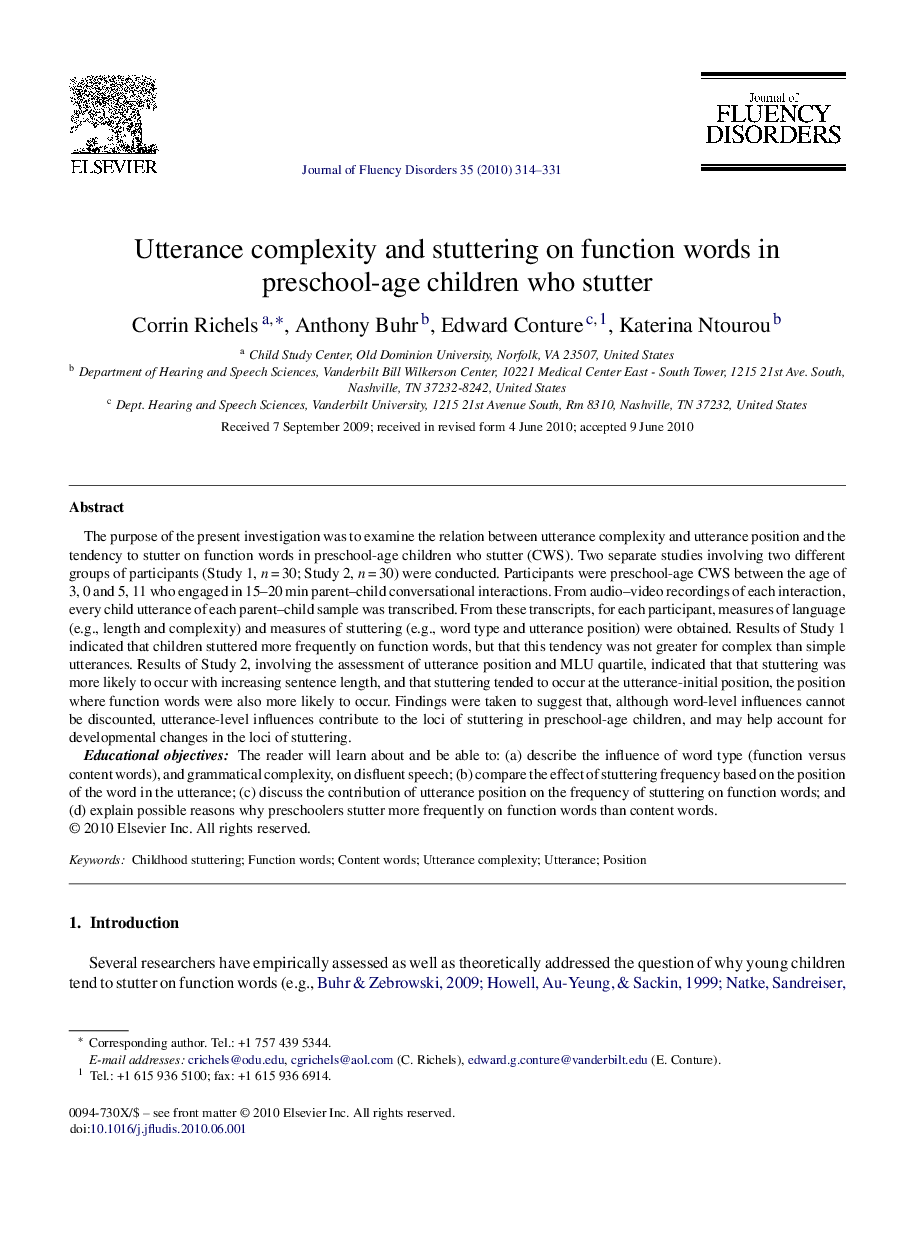| Article ID | Journal | Published Year | Pages | File Type |
|---|---|---|---|---|
| 911588 | Journal of Fluency Disorders | 2010 | 18 Pages |
The purpose of the present investigation was to examine the relation between utterance complexity and utterance position and the tendency to stutter on function words in preschool-age children who stutter (CWS). Two separate studies involving two different groups of participants (Study 1, n = 30; Study 2, n = 30) were conducted. Participants were preschool-age CWS between the age of 3, 0 and 5, 11 who engaged in 15–20 min parent–child conversational interactions. From audio–video recordings of each interaction, every child utterance of each parent–child sample was transcribed. From these transcripts, for each participant, measures of language (e.g., length and complexity) and measures of stuttering (e.g., word type and utterance position) were obtained. Results of Study 1 indicated that children stuttered more frequently on function words, but that this tendency was not greater for complex than simple utterances. Results of Study 2, involving the assessment of utterance position and MLU quartile, indicated that that stuttering was more likely to occur with increasing sentence length, and that stuttering tended to occur at the utterance-initial position, the position where function words were also more likely to occur. Findings were taken to suggest that, although word-level influences cannot be discounted, utterance-level influences contribute to the loci of stuttering in preschool-age children, and may help account for developmental changes in the loci of stuttering.Educational objectivesThe reader will learn about and be able to: (a) describe the influence of word type (function versus content words), and grammatical complexity, on disfluent speech; (b) compare the effect of stuttering frequency based on the position of the word in the utterance; (c) discuss the contribution of utterance position on the frequency of stuttering on function words; and (d) explain possible reasons why preschoolers stutter more frequently on function words than content words.
